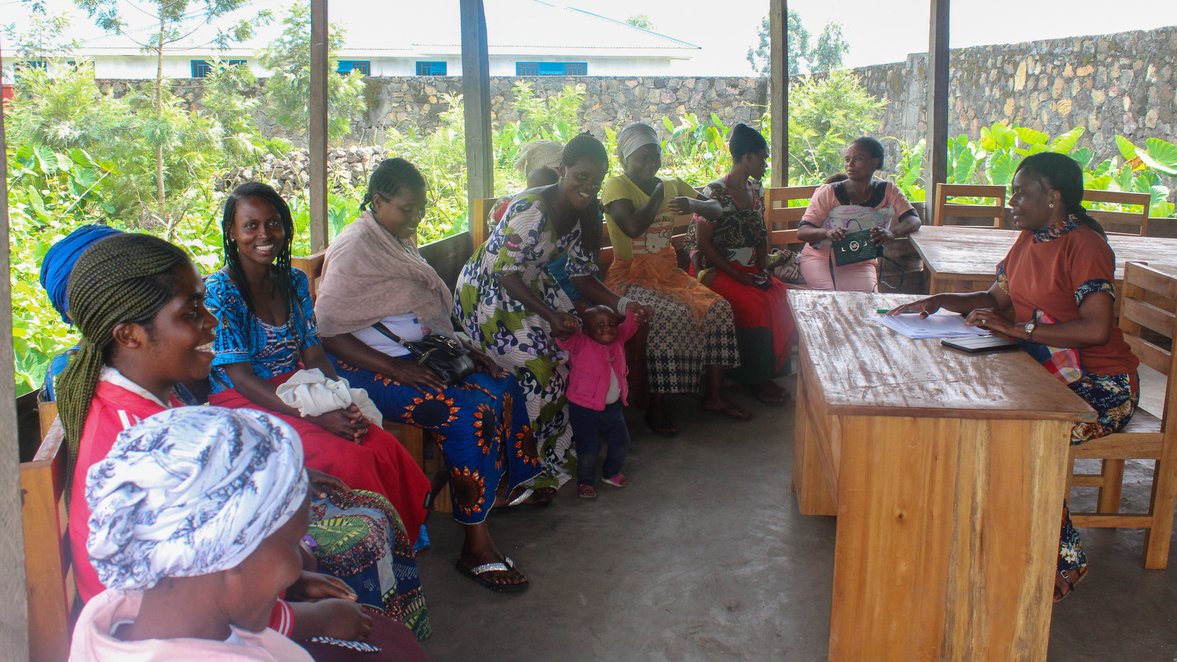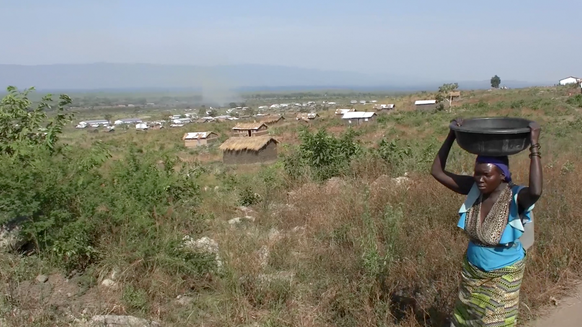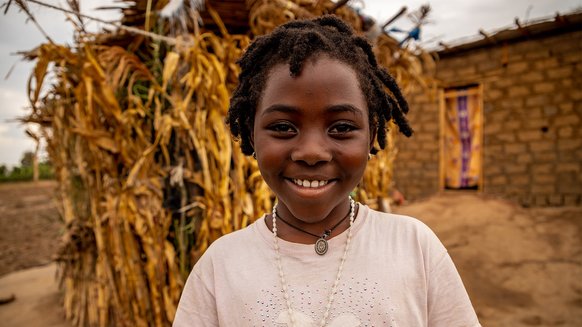Women and Girls at Centre of War Child Response in DR Congo
March 28, 2024

Sexual abuse rife
Women and children fleeing the violence have experienced horrific sexual assaults and genital mutilation by armed men, according to our colleagues and partners in the field.
The majority of cases have occurred while children are fleeing the fighting between DRC’s army, M23 and other non-state armed groups. Yet, arriving in overcrowded camps, with little more than the clothes on their backs, the nightmare is only just beginning.
The latest escalation has forced more than 250,000 people - including an estimated 130,000 children - from their homes. Makeshift shelters without lighting at night or adequate hygiene facilities increase women and girls exposure to sexual abuse.
“These risks increase dramatically when girls travel outside the camps in search of firewood for cooking or some form of work to feed their families”, says Marie Soudnie Rivette, War Child Head of Programmes in DRC. “Transactional sex, prostitution and forced marriage are too often the outcome.”
Reuniting children with their families
With a presence in the region since 2003, War Child is on the ground providing vital protection services to displaced children and families.
Together with UNICEF we have scaled up our identification and family tracing services. In the past few weeks, over 100 children - including 61 unaccompanied children - have been identified, documented and referred to social support services. Many have been taken into transitional care pending reunification with their families.
Creating a safe space
War Child also runs a collection of child protection centres in the heart of communities. This month some 600 children participated in activities focused on play, expression, sports and culture, helping them escape the world for a moment.
These activities have seen displaced but also young people from the host community join. With the support of facilitators, children have united to identify the specific risks that they are facing and develop “mitigation plans" to keep themselves safe.
Other activities have included TeamUp, our flagship psychosocial support intervention. We have also extended our support to temporary foster families in Goma and Nyiragongo to familiarize them with child safeguarding frameworks.
A group of social workers, responsible for supporting survivors of sexual and gender-based violence, underwent a “refresher workshop”. And 1876 people - including 72 children - took part in sessions on how to deal with risks including loss of civil documentation.
Scaling up our support
Our emergency response is also seeing the launch of a number of new initiatives including a project in Minova and Masisi funded by the Dutch Relief Alliance. The project will be focused on emergency education and child protection for children and caregivers directly affected by the M23 crisis.
As violence continues to escalate in a region already ravaged by 30 years of conflict, War Child and partners are exploring opportunities to rapidly expand our support.

